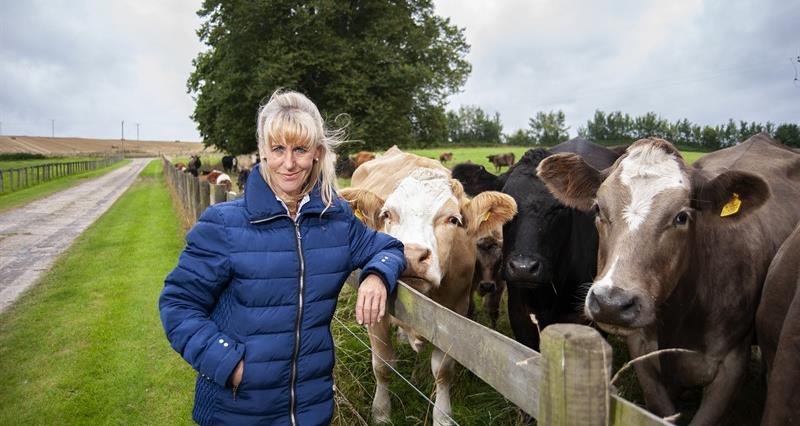Great British Beef Week, the popular national event celebrating Red Tractor assured British beef, returns for a thirteenth year with farmers, processors, supermarkets, butchers, farm shops, pubs and restaurants all uniting to celebrate the UK’s iconic meat.
Great British Beef Week (GBBW) is the brainchild of Ladies in Beef, a voluntary organisation of female beef farmers founded by Devon beef producer Jilly Greed and NFU President Minette Batters.
It will feature promotions on packs and in-stores, dishes on menus and in print and social media, while a number of shopper-focused special events across the nation will raise funds for the Royal Agricultural Benevolent Institution charity.
How to get involved
- Visit the Ladies in Beef Great British Beef Week website
- Choose from a range of social media assets that are free for you to use
- Use #GBBW2023 on your social posts
“Here in Britain we have a great climate for growing grass and rearing beef cattle. This week is about telling that story.”
NFU President Minette Batters
The importance of sustainability
Environmental sustainability is the theme for this year’s campaign, which is once again supported and underpinned by evidence and data from AHDB.
The aim is to highlight how British beef farmers work tirelessly to produce some of the most sustainable beef in the world. Real-life farm stories and infographics will be central in sharing the facts about British beef production and its positive environmental credentials.
Producing beef in the most sustainable way
Minette said: “Great British Beef Week provides an opportunity to celebrate the sustainability of British beef and the environmental benefits our grazing herds deliver. Here in Britain we have a great climate for growing grass and rearing beef cattle, which produce incredibly high quality, nutritious and versatile beef.
“This week is all about telling that story.”
